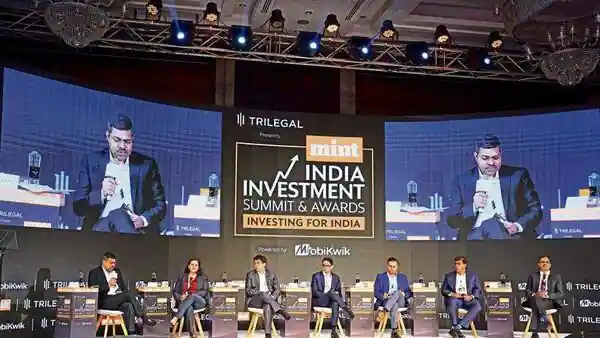
[ad_1]
Global investors such as Carlyle and PAG, which recently entered India, are bullish about how the market has evolved and presents to asset managers various options in terms of exits.
“In the last three years, India has got into a different orbit when it comes to private equity investments. You got public markets which are buoyant and deep, sponsor-to-sponsor trade happening, which is one fund selling to another fund, where there was almost like a stigma around it. At an average or median, India, I think, has broken off the issue of exits,” said Amit Jain, managing director and co-head at Carlyle India Advisors.
Jain said besides the fact that private equity, which started in India in the 2000s and is now in its adult phase of operations in the country, has also shown maturity in terms of buyouts.
“Buyouts are now even 2/3rd of the market in terms of dollar deployed in the last few years and the trend is likely to stay. A lot of supplies coming in terms of MNCs divesting, families asking themselves what’s core to me and non-core to me, sponsor-to-sponsor trade, generational changes,” he added.
Nikhil Srivastava, partner and MD, head of India private equity at PAG said one of the things that motivated the firm to enter the Indian market is the maturing of the country’s PE industry, which means moving towards more buyout transactions.
“Buyouts allow you to do value creation through years of ownership and exits. So, the vast number of minority transactions done by investors struggled with exits. Previously, the optionality of exits was limited and you were at mercy of the promoters for exits,” said Srivastava.
The World Bank Group’s private-sector arm International Finance Corporation (IFC), which is committed to deploying more than $2 billion in India every year, finds India as one of the most stable and structurally-sound countries among emerging nations.
“Since 2014-15, we have seen pro-reforms, regulation changes and that too, lot more investor-friendly. We have got foreign currencies being stable, reserves today which have kept the rupee depreciation to a bare minimum,” said Neha Grover, South Asia lead, PE funds, disruptive technologies & private equity funds at IFC.
She said that in India, a virtual cycle is being established wherein venture capital funds are selling to mid-market PE funds and they can get exits to larger buyout funds. Finally, larger PE funds can opt for exit through public listings.
Despite a plethora of unicorns and impressive exits, the limited partners, especially the pension funds, are not too much excited about India as exits are still a concern.
“Despite all the numbers that we hear about, we are not part of capital allocation by top pension funds, we may be clubbed together as some emerging market exposure. We will eventually get into that position. But questions like exits in Indian market continues to remain,” said Sudhir Variyar, MD & deputy CEO, Multiples Alternate Asset Management Pvt. Ltd.
He, however, pointed out that as compared to 5-6 years ago, exits are still not hypothetical anymore as now there are statistics to back it.
Sajid Fazalbhoy, partner at Iron Pillar, which is more known to be backing startups in the broader technology space said that even investors like Thoma Bravo and Vista Equity Partners tend to take a majority stake in software and IT companies. The fund is particularly keen on those startups which work towards digitization of services and build in India for the world, he said.
According to Harsh Pais, partner at law firm Trilegal, with the maturing of the Indian PE market, the legal and regulatory aspects have also managed to keep up a good space, even though there are still some areas that need to be simplified.
“We have seen a standardization of deal terms which earlier used to be debated a lot. There have also been new tools, instruments, capabilities that have come partly through regulations whether it is in capital markets, yielding types of instruments, bankruptcy reforms. So, the regulatory framework has kept up but it is by definition a trailing factor. There is an element of what we do that should not feel like rocket science but does end up like that. For instance, it should not be a rocket science to do a ‘take private’ transaction; it’s a very standard common type of transaction that happens in other markets,” said Pais…
Download
the App to get 14 days of unlimited access to Mint Premium absolutely free!
[ad_2]
Source link







